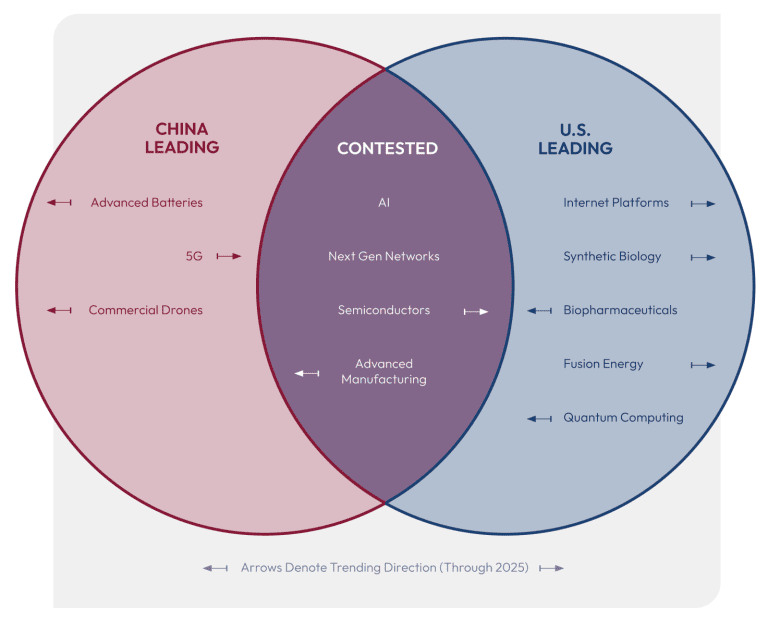US and China are failing – Why Europe could be the leader in crypto industry?
4 min readTable of Contents
Why could it be different this time, why should Europe hold its own against the US and Asia in the blockchain sector? Experience speaks against it. After all, other regions are leaders in all major technology areas. In the platform economy, Europe has nothing to report. Also, none of the top 100 technology companies in the world, with the exception of SAP, are from Europe. Especially since the large venture capital is not spent in this country, but west or east of us. This is also suggested by the valuations of crypto companies. There are no double-digit billion valuations in this country, but there are in the USA, with Coinbase or OpenSea, for example.

If Europe cannot keep up in terms of money and innovation, how can we still manage to become the No. 1 in the crypto sector? The answer is: with regulation. As absurd as it sounds, an aspect that prevents us from being able to compete with the US and Asia in other areas could give us an advantage this time.
USA and China are failing themselves
Even the best innovation is useless if the state and society are not yet ready for it, or even simpler: it is simply banned. In China we have experienced exactly that with the crypto sector and the USA is embarrassing itself with its crypto crackdown in front of the world public. The gossip between individual US agencies, such as the SEC vs. CFTC, is only surpassed by the social division between Democrats and Republicans. Crypto has now also been added as a new line of conflict. The result: Emotions count more than factual arguments.
If you look across the Atlantic as a European when it comes to crypto, you can almost be happy about the Brussels bureaucracy. Despite its sluggishness and its penchant for over-regulation, the European Union has created the most comprehensive legal framework for global crypto regulation with the Markets in Crypto Asset Regulation, MiCA for short. Of course, there are also nations like Switzerland or Singapore that are also very progressive, but these are very small jurisdictions with only a small domestic market.
Crypto: The US has the most to lose
The native crypto movement is decentralized and open source. It is precisely this innovation dynamic that conflicts with our current regulatory logic, which is organized centrally. In the case of garden furniture and bicycles, the regulatory aspect may only be of limited importance. In the highly regulated financial sector, on the other hand, the situation is quite different. Numerous institutions around the world, from central banks, regulators to the International Monetary Fund, have established a tightly regulated financial system.
The biggest beneficiary of the current structure is the United States. Not only do they provide the key currency, they also exercise the greatest control over our financial system through companies such as Mastercard or PayPal and through international financial institutions such as the World Bank and IMF. The crypto economy threatens that supremacy. The decentralized logic ensures that the cards are partially reshuffled and that power structures can shift again.
In theory, China would have an interest in supporting the crypto economy for this reason, but the Communist Party’s autocratic control craze stands in the way. You are not willing to give up your own domestic control if your opponents lose control. China is in a bind.
Dialectics: regulation is innovation
In contrast to the USA and China, Europe does not claim to be the No. 1 world power – despite realpolitik ambitions. In general, Europe with its 27 member states is used to a high degree of decentralization. The need for a decentralized consensus is in Europe’s DNA, as is the primacy of redistribution. Against this background, the blockchain technology and with it the MiCA regulation seems like an attempt to emancipate the otherwise sluggish alliance.
The USA and Asia, on the other hand, with China leading the way, are currently unable to play to their strengths. This “window of opportunity” gives Europe and especially the EU the chance to become a leader in the crypto economy. Not who “innovates” first, but who “regulates” first creates the possibility of a sustainable crypto establishment on a broad basis and a subsequent commercial innovation dynamic.
Already today, Europe is a leader when it comes to banks that are open to the crypto economy or willing to do business with crypto companies. What is needed now is a migration movement from the other side of the Atlantic. The fact that the stablecoin publisher Circle, among others, has chosen Paris as its new headquarters is a first sign in the right direction.
Innovation does not have to originate in Europe
Especially since innovation does not have to be created exclusively on site. It is much more important to make the globally generated innovation usable locally through regulation. After all, the further development of the sector does not happen in a specific region, but on a decentralized basis.
Just think of the Ethereum ecosystem and the developers who are spread all over the world. Accordingly, in the geographical context, the innovation does not necessarily have to come from the EU. Rather, the EU must provide a legal framework for the decentralized applications and economic activities of the sector. Whether the EU will take advantage of this opportunity is another matter.






